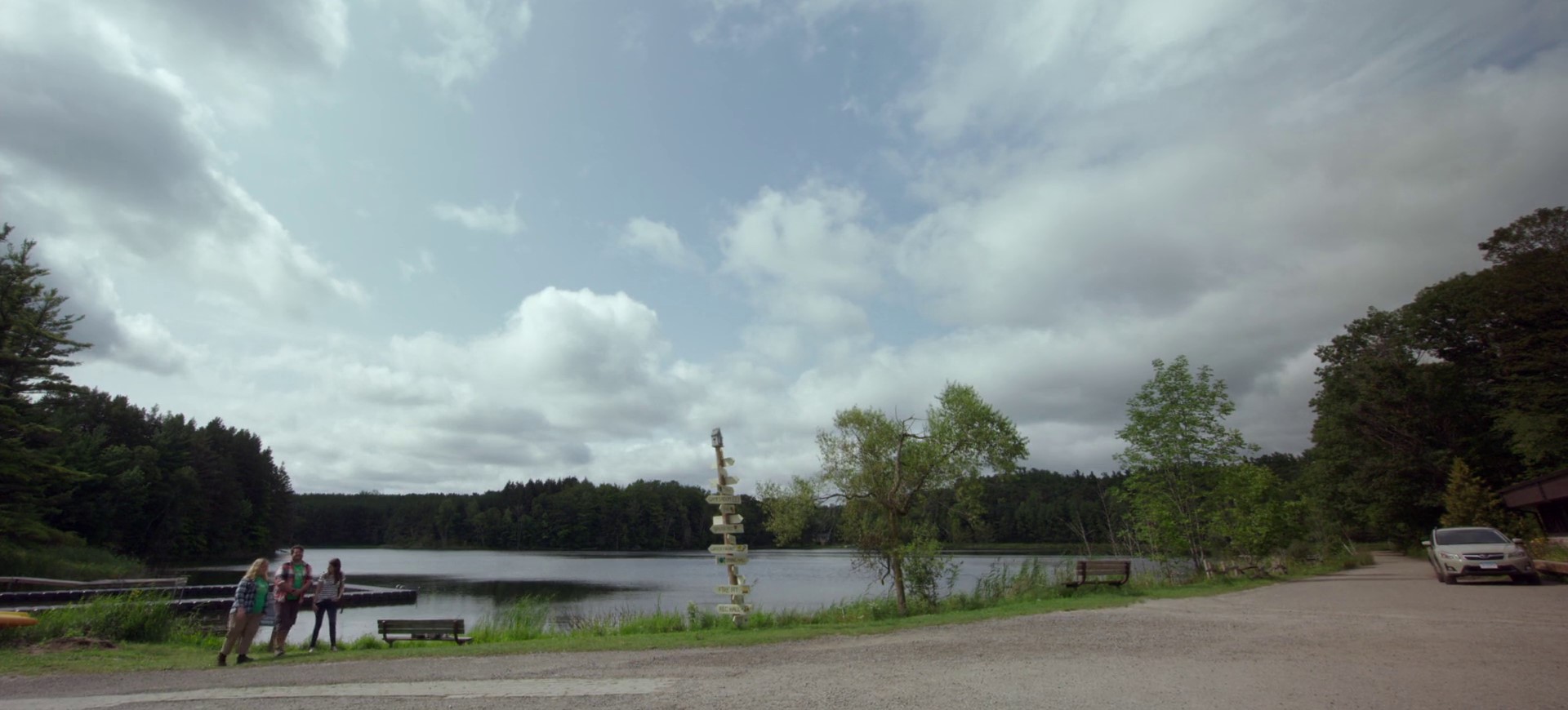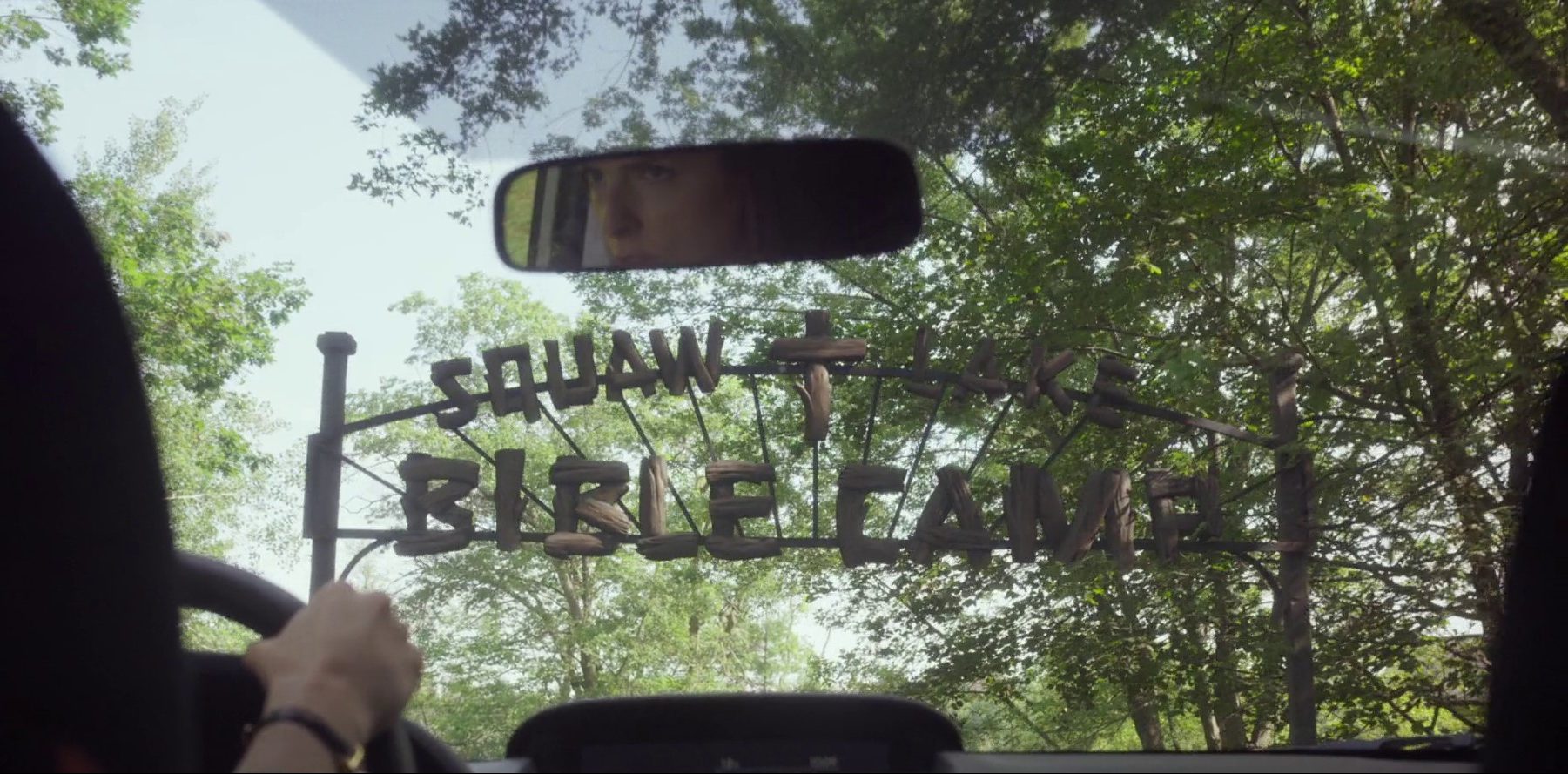In Paul Feig’s crime thriller film ‘A Simple Favor,’ Stephanie Smothers unravels the mystery behind the disappearance and supposed death of her best friend, Emily Nelson, after visiting Squaw Lake Bible Camp. While going through the publications of the camp, she comes across details concerning the McLandens, only to eventually find out that her friend is Hope McLanden, who disappeared from Michigan after killing her father with her sister, Faith. Since Squaw Lake is an actual lake in Michigan, the bible camp is expected to appear real as well. However, that isn’t the case with the one partially funded by the McLandens years ago!
The Relevance of Squaw Lake Bible Camp
Squaw Lake is surrounded by several campsites in real life. According to Upper Peninsula Michigan, there are fifteen campsites located on the shores of Squaw Lake for camping enthusiasts. However, Squaw Lake Bible Camp, which has been camping on the lake’s shore for around fifty years, is not one of them. The religious camp is fictional and created exclusively for the sake of the narrative of ‘A Simple Favor.’ In the film, the camp holds secrets regarding Hope McLanden, the real identity of Emily Nelson. A religious camp was created specifically to serve Hope’s background to conceive the motive behind her early crimes.

In the crime thriller, Hope escaped from her family after putting fire to their house and killing her father. This arson paved the way for her and Faith’s disappearance from the state. The sisters separated, and Faith became a threat to Hope because they killed their father. The sisters were forced to kill their father because of his controlling nature. When Faith and Hope left their house to explore their feelings, freedom, and sexuality, their parent put an end to the same. The sisters’ father was a highly religious and moralistic person who didn’t allow his two daughters to deviate from the “pure” path of God.
The bible camp establishes the McLanden patriarch’s immense devotion to his religion. He not only donated generously to the camp but also sent his daughters to the same so they could become ardent followers of their faith as he was. Thus, the “fun” Faith and Hope could have was available only at the bible camp. By killing their father, the sisters were also revolting against the rigid religious principles he followed, which are reflected through the bible camp.






